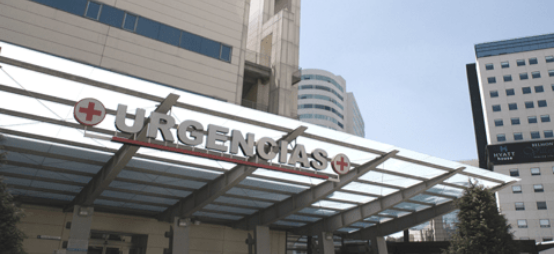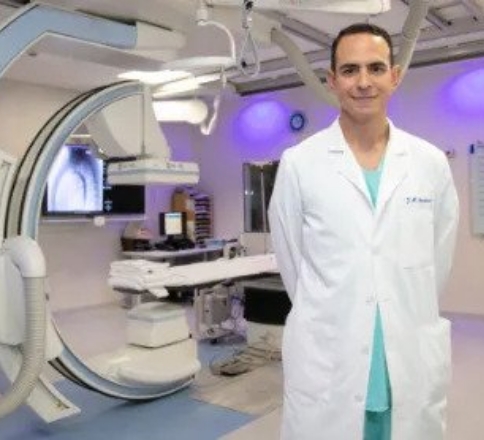Acute Myocardial Infarction- AMI Code
Acute myocardial infarction is an event in which a series of changes occur in the heart tissue, caused by the obstruction of a coronary artery or decreased blood flow, causing low oxygen supply in the cardiac cell, culminating in cell death and loss of heart tissue.
What causes an acute myocardial Infarction?
The obstruction or narrowing of the coronary arteries is due to different causes, which occur gradually and are associated with the following risk factors:
Tobacco use
Obesity
Sedentary lifestyle
Hypertension
High cholesterol
Old age
At Centro Médico ABC we have a program for the prevention and care of Acute Myocardial Infarction called the AMI Code.
Attention to the main signs that can indicate the presence of a heart attack:
- Pain or tightness in the chest or pit of the stomach
- Sudden cold sweat and nausea
- Jaw pain
- Neck pain that travels to the neck and arms
- Difficulty breathing
- Loss of consciousness
- For a person having a heart attack, every minute is important. Remember, the faster you get to a hospital, the more treatment you can get.
If you notice any of these symptoms, call the emergency room. At Centro Médico ABC we can help you. Every minute is important!
55 5230 8198
We have Interventional Cardiologists 24/7 for the timely care of the heart attack.
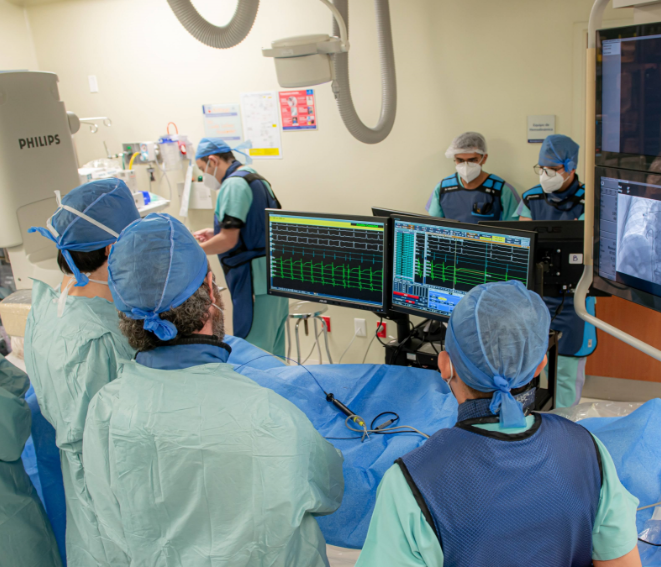
How does the AMI Code work? “Time is muscle”
Upon your arrival at the Emergency Unit of Centro Médico ABC, the doctor will make an assessment to make a timely diagnosis and offer treatment as quickly as possible.
The diagnosis is made by presenting at least two of the following criteria:
- Suggestive symptoms, such as crushing chest pain, sweating, and migration of pain to another part of the body.
- Specific changes in the electrocardiogram.
- Laboratory studies with elevation of enzymes related to heart tissue damage.
After the suspicion of acute myocardial infarction, the following is carried out, in the shortest possible time:
- An electrocardiogram is performed.
- Laboratory samples are sent to look for substances in the blood that are released by damaged heart tissue (heart proteins or enzymes).
- An IV catheter is placed so that medications can be given; nitroglycerin and/or morphine are given to relieve pain and anxiety.
- Medications are given as medically prescribed to help stop new blood clots
from forming. - Cardiac catheterization: with this method, a small plastic tube (catheter) is passed through a blood vessel (artery), usually in the groin, to the coronary arteries. A dye (contrast agent) is injected that allows the arteries to be seen on an X-ray, if occlusions or narrowing of the blood vessels are found, a procedure known as percutaneous coronary intervention (also known as
stenting) may be performed. - Stenting: with this procedure, a small catheter with a balloon at the
end is “pushed” into the narrowed coronary artery, then the balloon is inflated, helping to open the affected artery. A stent (an expandable metal tube) is placed in the artery to prevent the narrowing from recurring. - In general, the best result occurs when the artery is preferably opened
for 60 to 120 minutes.

After emergency treatment
It is necessary to be hospitalized in the Coronary Care Unit or Critical Care Unit service of the Centro Médico ABC for cardiovascular surveillance and monitoring, the optimal duration of admission should be assessed in each particular case, considering cardiac risk, comorbidities, functional status and the social support of the patient in addition to the success of the reperfusion treatment carried out, since electrical complications such as cardiac arrhythmias can occur as a consequence of the inflammation of the heart, so you must be connected to a monitor 24 hours a day.
Multidisciplinary evaluation and perspectives upon release
At Centro Médico ABC, we have a cardiovascular rehabilitation program to support patients who have suffered from a cardiovascular event, to incorporate our patients into their normal life.
Our cardiac rehabilitation team works with patients so that they can regain their strength and reduce the risk of future heart problems, as well as help them lead a healthy lifestyle and be able to join their daily activities in the safest way and as fast as possible.

Lifestyle changes to prevent an acute myocardial infarction.
A healthy lifestyle plays an important role in reducing the risk of death and heart attack.
You can do a lot to improve the health of your heart and your blood circulation, even if you have had an acute myocardial infarction.
Here are some recommendations to have a healthy life and reduce the risk of having a heart attack:
- Do not smoke.
- Improve your eating habits.
- Eat foods low in saturated fat, cholesterol, and sodium.
- Performs physical activity under medical supervision.
- Take your medications at the dosage and times indicated by the doctor.
- Take your blood pressure frequently.
- Maintain a healthy weight.
- Lower your stress levels.
- Seek emotional support when needed.
- Visit your doctor regularly.
Psychological evaluation
Cardiovascular disease has physical and emotional consequences and affects the different areas of the quality of life of the person who suffers from it. Trying to face the different challenges that the disease implies can feel like a burden and generate different emotional states. It has been observed that it is common, after being diagnosed, to show symptoms of depression, anxiety, stress, fear, and catastrophic thoughts. The care and management of these emotional states after a cardiovascular event is important as they play a role in the prognosis and optimal recovery from the disease.
Our Clinical Psychologist will conduct a structured interview and the application of psychological assessment instruments necessary for the detection of symptoms, life stressors, support network and lifestyle of the patient with cardiovascular disease.
Nutritional assessment
The goal of nutritional evaluation in patients with cardiovascular disease is to identify patients with malnutrition (lack or excess of nutrients), analyze the biochemical factors associated with these excesses, verify if the dietary intake is adequate, and measure body composition to make a personalized and achievable nutritional plan.
For both preventive and therapeutic recommendations, the health team must consider the evaluation of lifestyle, in particular, eating habits and physical activity of each individual, in order to promote viable measures in each case.
Frequently asked questions
Where to Find Us
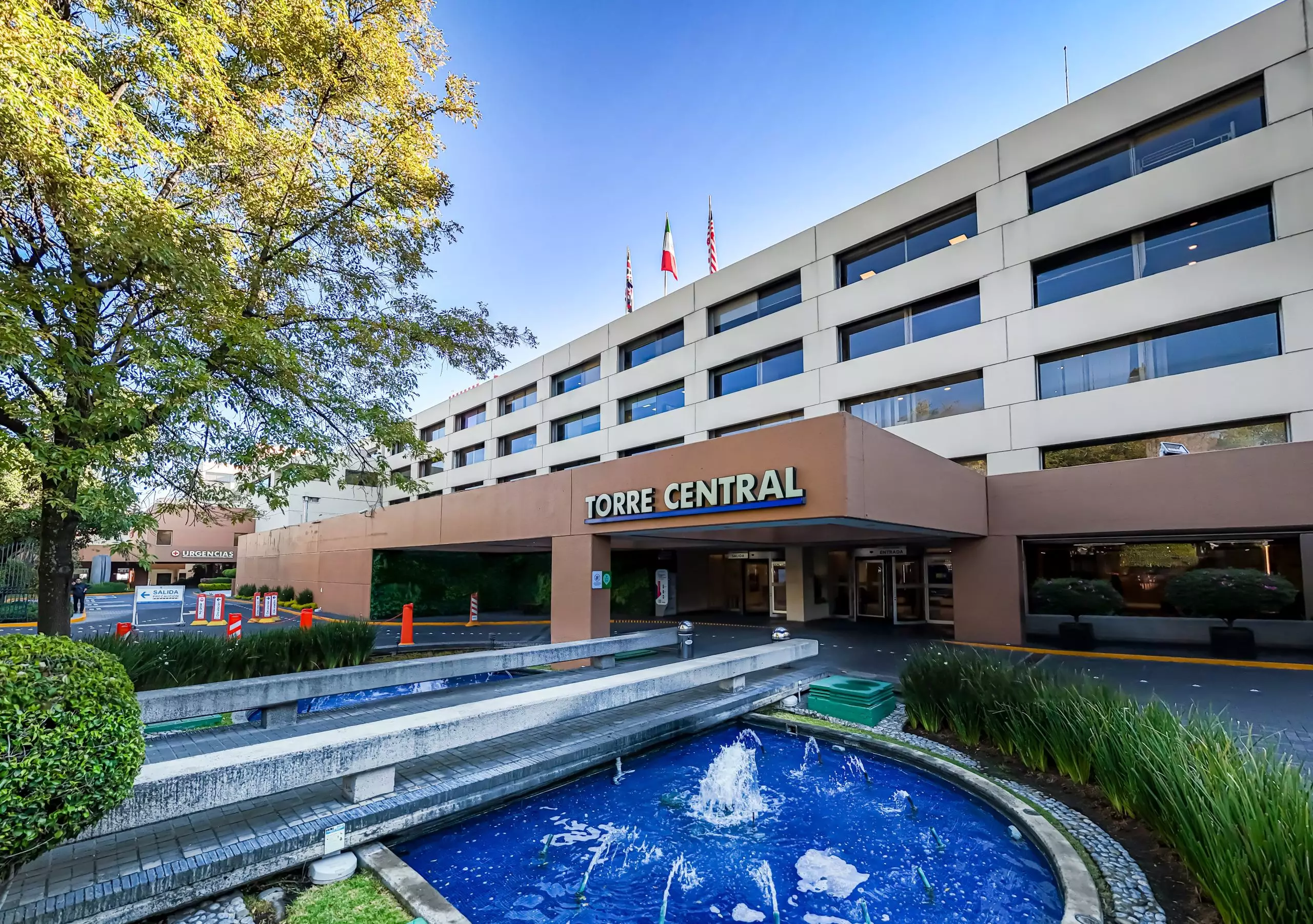
Campus Observatorio
Sur 136 No. 116, Col. Las Américas, Álvaro Obregón, 01120, Cd. de México.
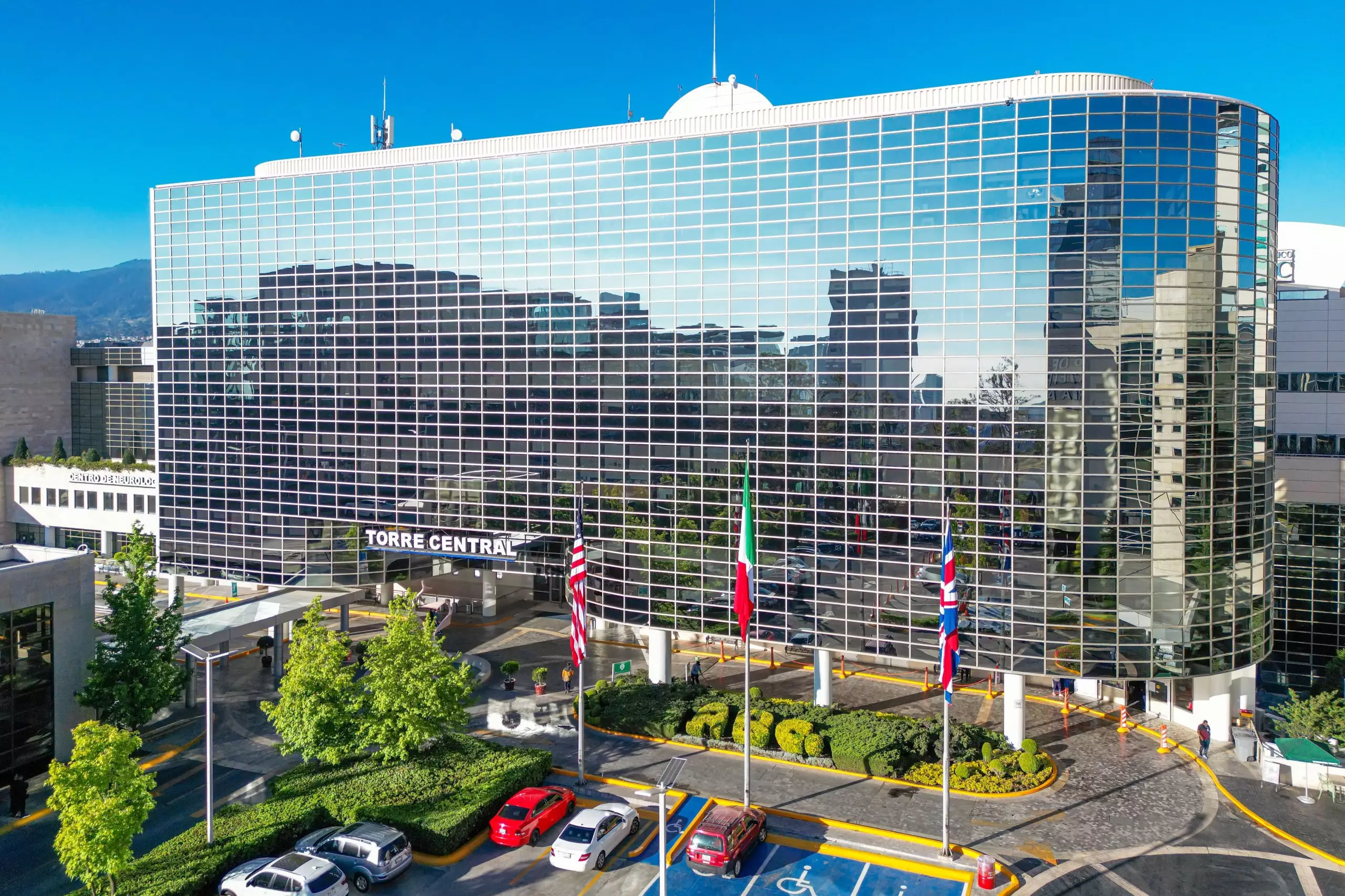
Campus Santa Fe
Av. Carlos Graef Fernández 154, Col. Santa Fe, Cuajimalpa, 05300, Cd. de México.





